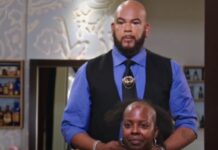
*In the last month, there has been the most activity in terms of enforcing collegiate eligibility rules since the point shaving scandal of the 1950s.
Unfortunately this increase in activity is due to the FBI and not the NCAA. There are hundreds of thousands (maybe millions) of people playing numerous sports all over the country.
There are thousands of people playing sports at institutions of learning. And yet only a tiy fraction of these athletes is affected. This is because there is very little interest in the bowling championships of colleges in the Big Sky Conference or in your Wednesday night rec league volleyball.
That is, not all athletic contests are treated the same – nor should they be. Intercollegiate athletics that produce revenue (mostly football and basketball) are a different story. And the players who participate in them are being subjected to amazingly unfair and exploitative labor practices.
But more importantly they are being subjected to unrealistic labor practices. In is critical that we understand college football and basketball players as laborers because it is from that fact that all of the complications arise. These athletes are producing an entertainment product that is consumed by millions of Americans annually and is consequently valued at tens of millions of dollars by television networks.
In every other aspect of American life outside of family, people understand that monetary compensation goes along with something so valuable. But in the area of collegiate athletics somehow compensation is supposed to be forbidden. Only no one really believes that fable. Hence the problems that have plagued “amateur” sports at colleges since the turn of the 20th century. Everyone associated with those revenue producing sports is monetarily compensated according to the money being generated except the players.
Most university faculty and/or staff are paid according to what others in their fields earn. Coaches get that but also receive bonuses tied to successful seasons, are able to sign endorsements, and host media programs – all because of their success within a sport. They are being compensated handsomely for their labor. On the other hand players, who are largely responsible for the money being generated, are not allowed to benefit financially.

Given that most people can see that players should be compensated but aren’t allowed , this sets up two immediate problems. One, every little benefit becomes an infraction. A tattoo that costs $100 is a violation of the rules. Secondly, even small amounts of benefits can and do entice players to break the rules of amateurism. This leads to a third problem – penalties.
The people in charge at the NCAA must know at their core that infractions are happening all the time. And they mostly choose to ignore these infractions. But even when bigger issues arise, most of the penalties the NCAA metes out do not deter the next school (coach, player) from similarly breaking the rules. Probation for a program is not something any school volunteers for, but balanced against multiple seasons of winning, trips to postseason contests, and the related money the penalties pale in comparison.
Having to vacate wins, or forfeit athletic awards is nothing to the player who has already left the school and has already used those accolades to further their career professionally (higher draft position for instance). If players were allowed to profit from their labor like everyone else in the country this wouldn’t be an issue but because everyone involved inherently accepts that the rules of amateurism are untenable, everyone also inherently accepts that those rules will not be abided by.
Furthermore not only are NCAA rules unrealistic because they do not deter cheating, they often do not (and cannot) punish the correct parties. When a coach is under investigation at a school, (s)he can go to a different school and/or take a job with a professional team. When a player is under investigation, they can forgo their remaining eligibility and turn professional. In either case the parties who participated in the wrongdoing are no longer under the purview of the NCAA to punish them.
The private parties not associated with the school (agents or boosters) were never under the purview of the NCAA. So who gets penalized? The school and more specifically the incoming coach and players who were not part of the infractions. Unless you believe that the school has someone masterminding this independent of the coach and highly prized players, you understand this to be wrong. Of course the solution as I have written before (allowing high profile players to profit from their likeness) is a simple fix.
I hope it doesn’t take another FBI operation to get implemented.
Trevor Brookins is a free lance writer in Rockland County, New York. He is currently working on a book about American culture during the Cold War. His writing has appeared in The Journal News. You can reach him at [email protected] or follow him on Twitter @historictrev.
We Publish News 24/7. Don’t Miss A Story. Click HERE to SUBSCRIBE to Our Newsletter Now!





